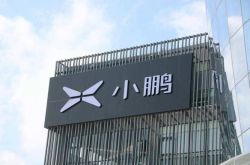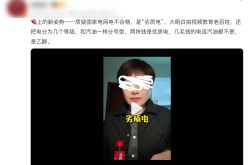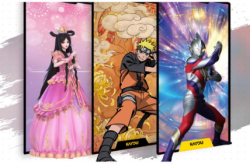Xia Yiping confronts Jia Yueting, the automotive industry falls in love with "verbal sparring" due to traffic anxiety
![]() 06/28 2024
06/28 2024
![]() 425
425
Jia Yueting, who always enjoys confronting others, has been confronted by someone else this time.
Recently, Xia Yiping, CEO of Jiyue Auto, tweeted on Weibo that in the last era, Jia Yueting defined a good product in the United States, but now his definition of the product has fallen behind, and apart from some terminology, there is no innovation. Jia Yueting is nothing more than a "word creator".
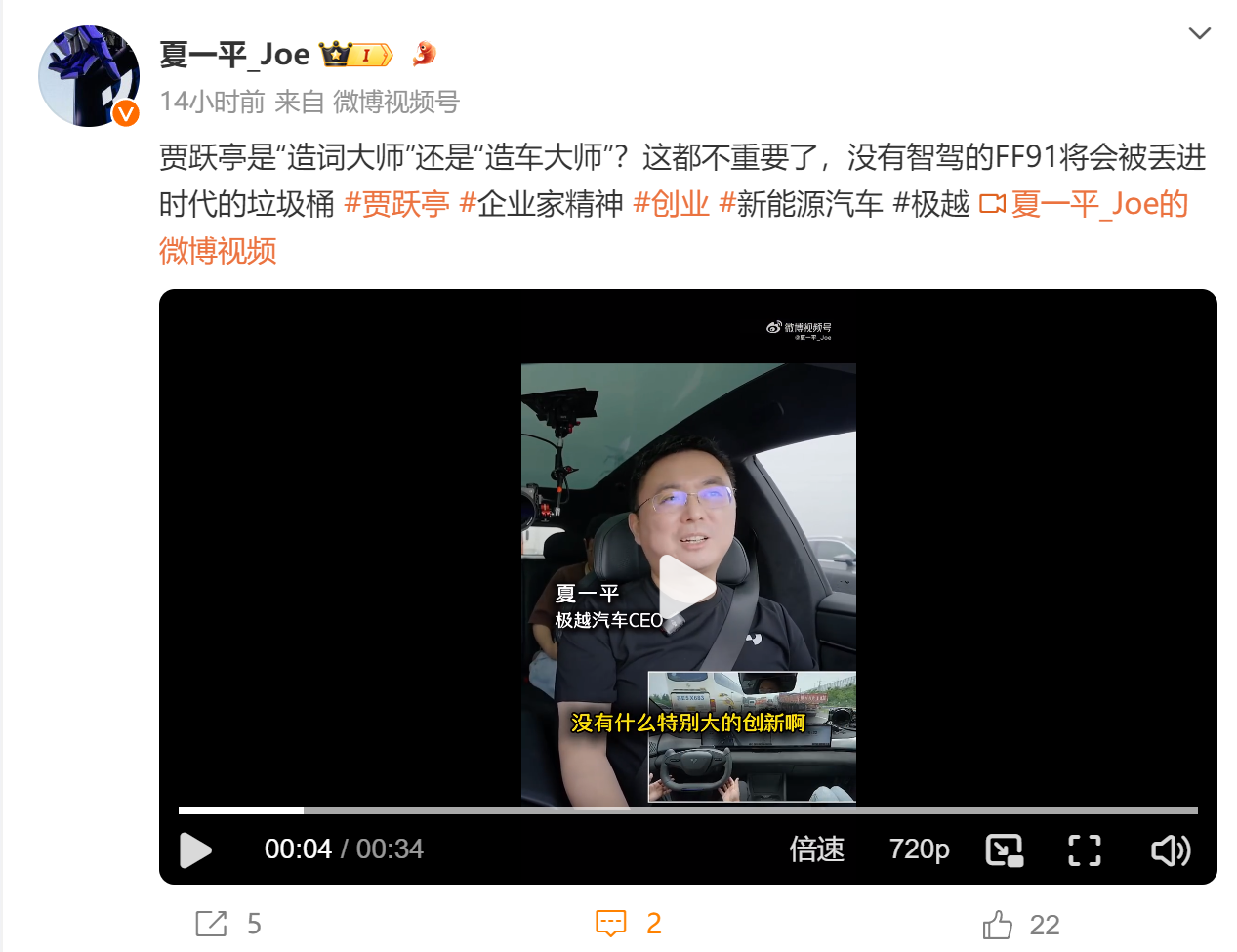
From the beginning of the year, Jia Yueting first lashed out at HiPhi Auto for copying and mocking its production halt, and then mocked Xiaomi Auto for relying solely on the Chinese supply chain to build cars, calling it only a "follower" in the industry. In the past two or three months, after seeing the United States increase tariffs on China's new energy vehicles by 100%, Jia Yueting immediately said that Faraday Future would serve as a "bridge between Chinese and American cars" and build a personal IP, relying on live streaming to sell cars and make money.
What Jia Yueting didn't expect was that after a period of silence without criticizing other automakers, he himself encountered mockery from Xia Yiping.
In fact, in recent years, there have been many cases of mutual attacks between executives in the domestic automotive industry, and some incidents give people the impression of撕破脸皮 (tearing apart the face) between automakers. It seems that mutual attacks between executives in automakers are becoming a trend, and "arguing" has become a prerequisite course for executives to promote their products. But is the verbal sparring between executives in automakers really good for the entire industry?
Mutual attacks between big shots, is this top-level business warfare?
Classifying the types of arguments, there are mainly three reasons for mutual attacks between executives in automakers. First, attacks on products.
In 2023, a product of a joint venture brand was launched shortly after BYD's Qin PLUS DM-i. Many netizens ridiculed the brand as not worth buying, leading the COO of the joint venture brand in China to angrily criticize BYD.
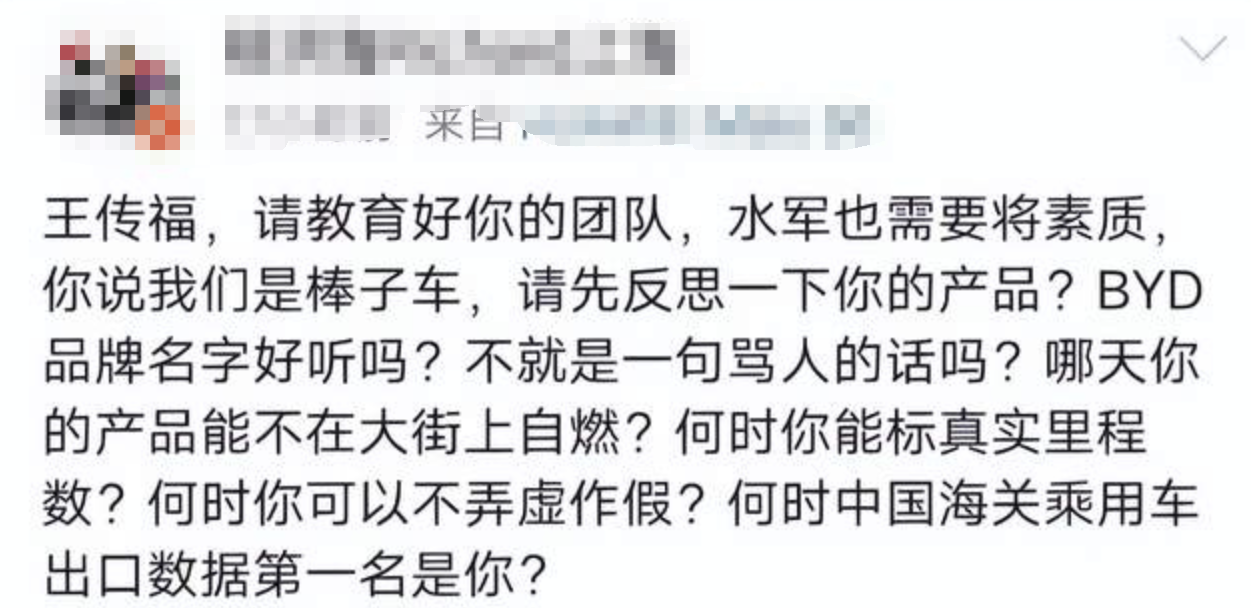
Also in 2023, Changan Auto sent a legal letter to another independent brand, accusing it of copying Changan's concept cars and mass-produced vehicles, infringing on Changan Auto's intellectual property rights. The accused automaker replied that the contents of the legal letter were seriously inaccurate, the accusations against them were unfounded, and caused severe damage to the company's brand and reputation.
There are countless examples of other press conferences involving pulling down competitors, and sometimes automakers will try to cover up the truth by omitting part of the name information of competing products, but people who follow the automotive industry can still tell who the automakers are targeting.
Such attacks are too straightforward and superficial, with signs of撕破脸皮 (tearing apart the face) and getting angry, which can easily lower one's own style. Therefore, those targeted by such attacks generally do not respond proactively unless the other party is too excessive, such as the Changan copycat incident or the dispute between Xiaomi and ZIMO.
Second, differences in development and marketing philosophy. At the Future Auto Pioneer Conference held a while ago, many executives from domestic automakers took the stage to speak. Yu Chengdong, Chairman of Huawei's Intelligent Automotive Solutions BU, Li Shufu, Chairman of Geely Holding, and Zeng Qinghong, Chairman of GAC, all believe that the domestic automotive industry is excessively competitive and should abandon price competition, focusing instead on value and experience as the way out for independent brands.
Li Yunfei, General Manager of BYD's Brand and Public Relations Department, said that price competition is normal. Initially, when automotive raw materials prices rose, car prices also rose. Now that automotive raw materials prices have fallen, car prices should naturally follow suit. Moreover, price competition is also a part of value competition. Isn't it true that reducing the price of mid-range cars to the level of low-end cars allows low-end cars to have higher value and experience?
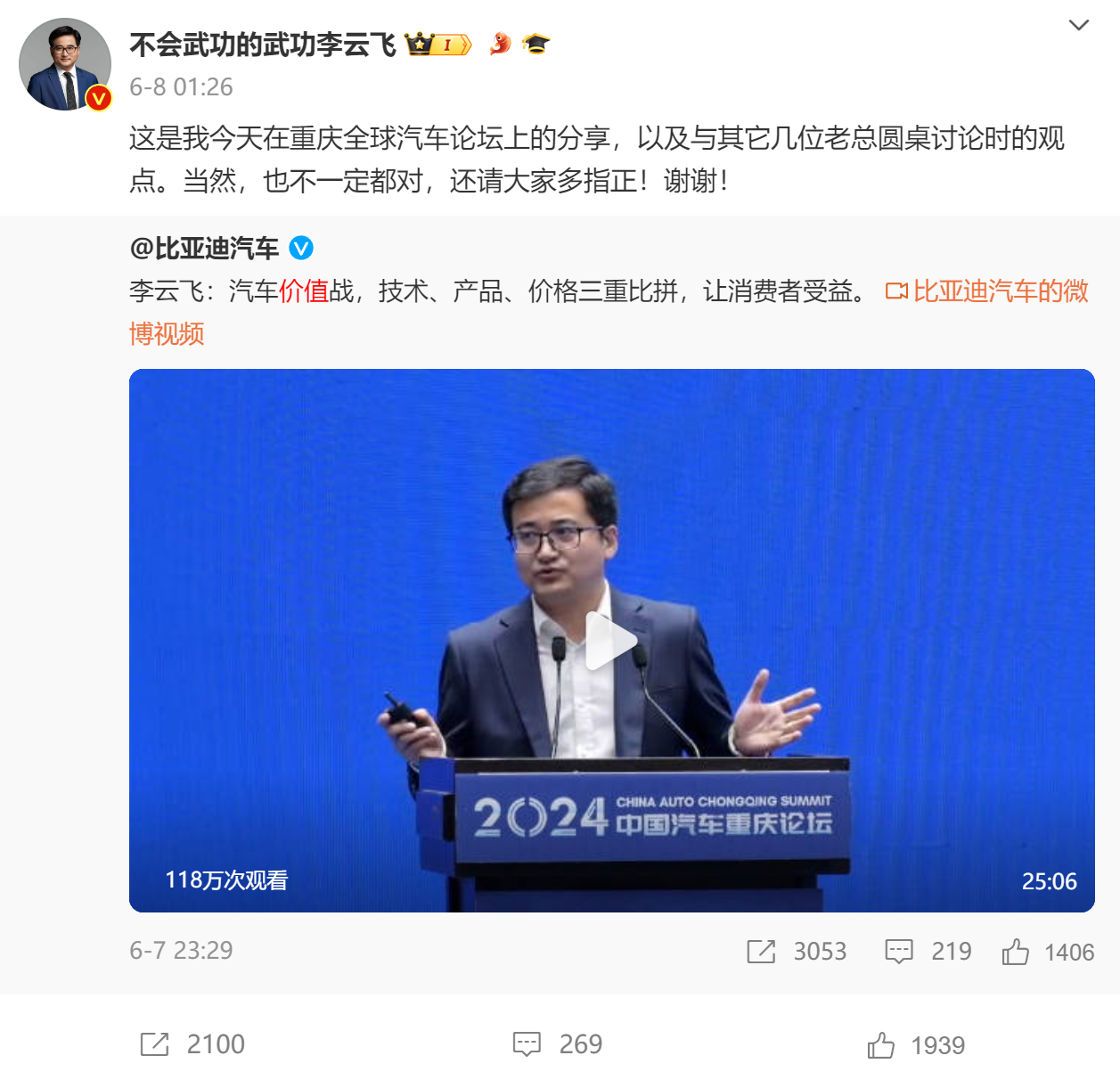
In terms of marketing, there are also many differences between automakers. For example, the President of Great Wall Motors once said at a shareholders' meeting that Ideal Auto is the "King of Weibo." Li Xiang, CEO of Ideal Auto, responded that it was a pity they couldn't acquire Weibo, whose market value of $3.6 billion is cheaper than Autohome's. (PS: Currently, Weibo's market value is $1.959 billion, apparently it has fallen again.)
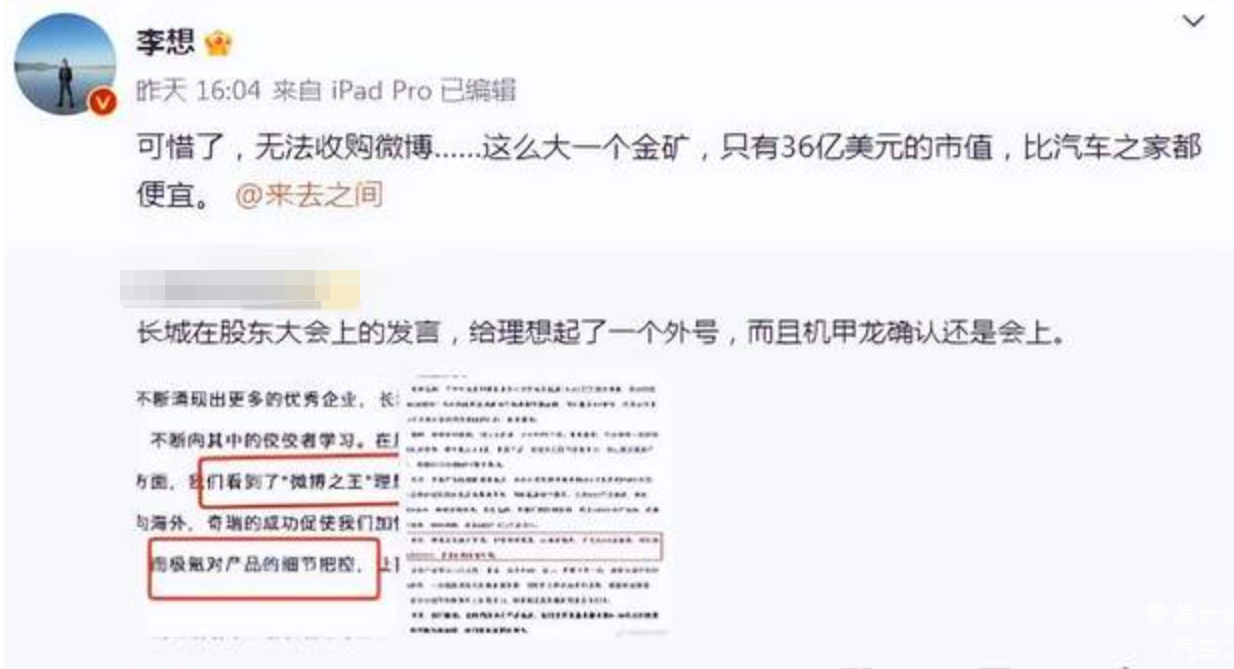
Li Xiang also said that Ideal is the automaker with the lowest sales and management expense ratio among Chinese brands, and globally, only Tesla could be lower than Ideal. Ma Lin, Assistant Vice President of Brand and Communication at NIO, mocked that Ideal did not invest too much money in Weibo, but the marketing expenses for its three models on Douyin reached 90 million yuan.
Although differences in philosophy can also lead to quarrels among executives in automakers, they generally do not appear to撕破脸皮 (tear apart the face), so executives in automakers are happy to respond, which helps increase brand topicality and exposure.
Third, differences in technology. Even giants like Toyota and Volkswagen cannot occupy the first tier in all areas of new energy vehicles, let alone independent brands. Therefore, it is common to emphasize one's strengths and avoid one's weaknesses to cover up one's deficiencies.
Wang Chuanfu, Chairman of BYD, once said that autonomous driving is all bullshit and deception, just like the emperor's new clothes, and in essence, it is advanced assisted driving. Yu Chengdong retorted that there are two reasons why autonomous driving is bullshit. Either one doesn't understand the industry or one says so intentionally, attacking the industry because one can't do it well.
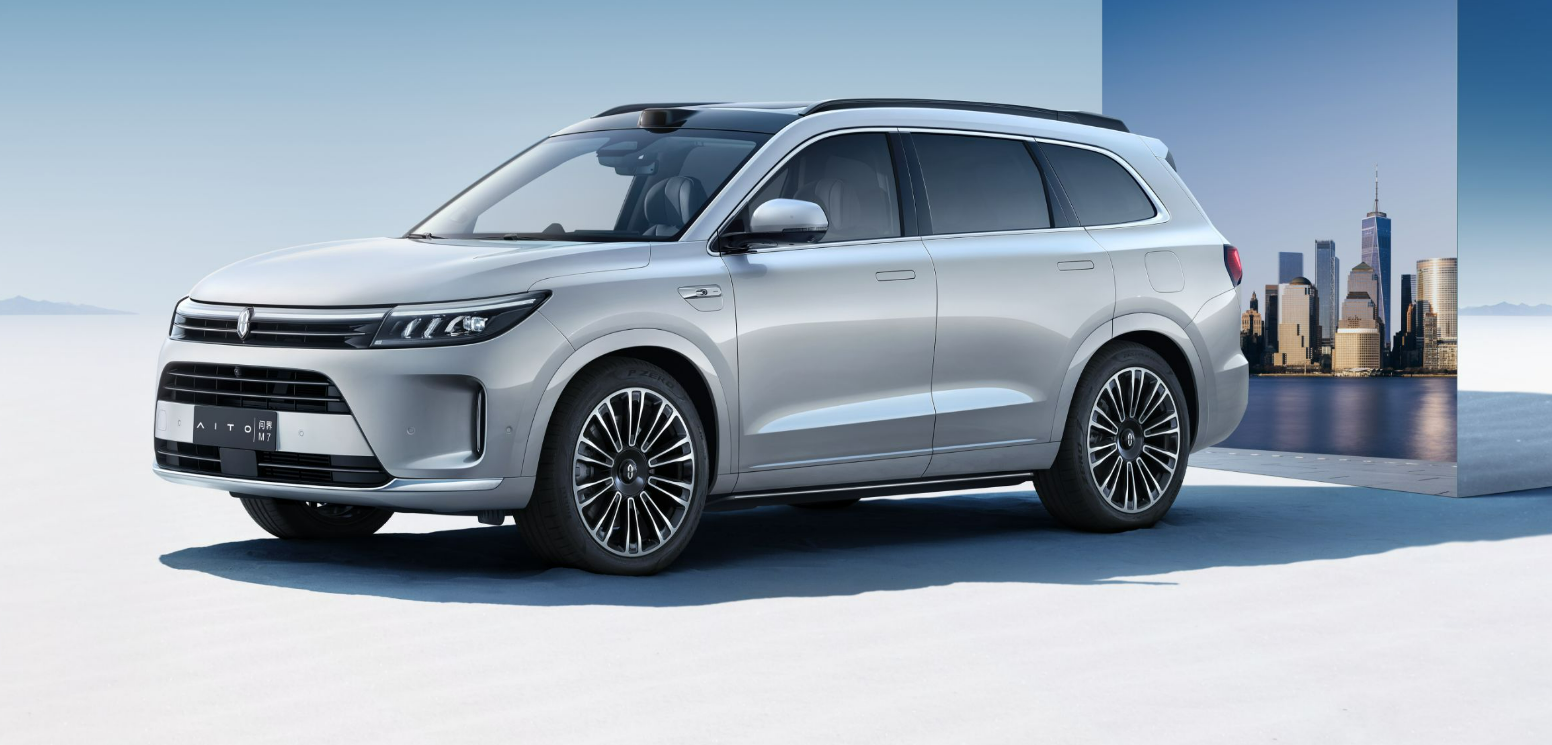
Volvo executives said at a press conference that what the new forces can do, we can learn in three years, and what we can do, the new forces cannot learn in ten years. Li Bin, CEO of NIO, said that we can swap batteries, and they can't. If they learn everything, they'll become Sun Wukong (the Monkey King).
Arguments arising from differences in technology are generally not too intense and may even stimulate automakers to accelerate catching up with competitors.
The mutual confrontations between executives in automakers have mainly occurred in recent years, and even many people who do not follow the automotive industry have heard of executives like Yu Chengdong, Lei Jun, Li Bin, He Xiaopeng, and Li Xiang. From controlling the overall situation behind the scenes to confronting each other on stage, what are the automakers' executives aiming for?
The automotive industry's trend has changed, and mutual confrontations have become a source of traffic
In the past two decades, the two most famous internet wars should be the "3Q War" between 360 and Tencent and the "Small 3 War" between 360 and Xiaomi after 360 entered the mobile phone industry. In the end, 360 failed in its mobile phone business, and Xiaomi emerged victorious.
Now, Zhou Hongyi has transformed into a top figure in the automotive industry and has spoken out against Jia Yueting, signaling that a new storm seems to be coming.
Xiaotong believes that the current mutual confrontations among automakers' executives should bear some responsibility from the internet and digital industries. It is worth noting that executives like Yu Chengdong, Li Bin, Li Xiang, and Zhou Hongyi all have backgrounds in the internet and digital industries. In these two industries, confronting others is commonplace, and it doesn't necessarily mean there is a conflict before confronting someone. For example, Jobs, who did not make cars, once ridiculed low-priced Porsches as something only dentists would drive.
Cross-industry car manufacturing by digital and internet companies has changed the original marketing ecosystem of the automotive industry, forcing automakers to join internet marketing and build personal IPs. Zhu Huarong, Chairman of Changan Auto, once said that Changan Auto aims to cultivate its own "Yu Dazui" and "Leibusi".
Secondly, another factor for executives in automakers to join mutual confrontations is to grab attention. As the saying goes, black and red are both red. In today's world, traffic is king in all industries. Initiating verbal sparring with other automakers can increase the exposure and popularity of brands and products. Good wine needs no bush, but if there is no discussion or sales, why care about the possible adverse impact on brand image.
Moreover, as long as a product has sufficient competitiveness, even if the brand is controversial, there is no need to worry about consumers not being willing to buy it. Even BYD, which has the highest sales in new energy vehicles, and Ideal and Hongmeng Zhixing, which have the top two sales among new forces, have not received all praise, but the贬低 (derogatory) voices have not affected their sales.
It should be noted that the mutual confrontations among automakers' executives have sparked public opinion wars between brand fans, leading to companies like Great Wall and BYD issuing bounty notices to encourage netizens to actively report water armies that intentionally smear others. It is not uncommon for fan behavior to escalate to the main entity. When automakers' executives engage in verbal sparring, they should try to avoid provoking fan wars.
Traffic is a double-edged sword
For automakers, mutual confrontations can increase traffic and give automakers the opportunity to convert traffic into sales. For consumers, the disputes between automakers can reveal more insider information, such as a previous incident involving a brand's non-high-pressure fuel tank, which is difficult for ordinary consumers to understand usually. This information helps consumers make rational choices when selecting products.
In addition, the basis for verbal sparring between executives in automakers is that their products and technologies really have outstanding features. Even if it is just for arguing, automakers still need to have confidence in their product functions and quality. Mutual confrontations among executives can promote automakers to increase R&D investment and improve product quality.
Of course, traffic is a double-edged sword. Overly pursuing traffic can trap automakers in a marketing vicious circle, knowing only how to provoke others everywhere and ignoring the quality of the product itself, and there may even be cases of hiring water armies to attack each other.
Automakers will not give up their pursuit of traffic, and in the future, "arguing" may become one of the required courses for executives in automakers. How to standardize verbal sparring, so that mutual confrontations among automakers' executives do not go too far and remain at a level of promoting oneself while trying not to pull down competitors, belongs to an advanced course.
On the bright side, perhaps the verbal sparring in the automotive industry is also a manifestation of industry prosperity. If it can "debate more clearly" and help consumers better understand the essence of products, it may not be a bad thing. What we need to resist is malicious smearing, angry rumors, etc. In the end, which are the bad coins and which are the good coins in the industry, Xiaotong believes that reason will prevail.
Source: Leitech



